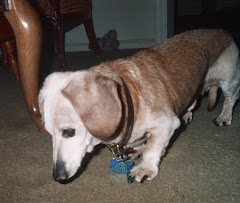
So there we were. The play was Wonderful Town, being performed at the old Festival Music Theatre in Ft. Wayne, Indiana. .
We were in the final week of rehearsal when it was announced that the composer of the musical was expected to show up for one of our performances.
Having someone of interest in our audience was nothing new to us. Since Wonderful Town had closed on Broadway only a few years before, shadowy people had already appeared without fanfare from time to time, would hover quietly for awhile, and then slip back into the darkness.
So this was nothing new to us.
But the composer? Now THAT would be something!
“What? Leonard Bernstein is coming HERE?”
“That’s what I heard.”
“You’re kidding me, right?”
“I’m not.”
The truth – or at least the consensus of the rumors – claimed that Maestro Bernstein would be in Cleveland during our opening weekend. (This was confirmed. He was attending a conference that was widely advertised.)
Rumors further suggested that since we were one of the first productions of his show that would NOT be under his direct supervision, he was curious as to how well we would do. (In looking back 50 years, I wonder at our gullibility in believing that this could even remotely be possible. For reasons I didn’t know at the time, however, this indirectly turned out to be true.)
Thursday night came and went. This was press night. They showed. He didn’t. This was just as well. We didn’t want or need competition.

“Yeah-ta-ta-tah-tah … on Christopher Street.” I’m not at all saying that
Wonderful Town wasn’t popular. It was. But it represented a cultural period of innocence in this country that was rapidly fading away. Curiously, if you listen carefully to the rhythms in the music and look at some of the potential subtexts, you will see (in retrospect) that
West Side Story was almost inevitable.
Friday was opening night. According to the press, we gave the play “high energy and great vitality.” Several of our performers were singled out for individual praise. The rest of us partied heavily until the wee hours of the morning. And … where was Leonard Bernstein? Nobody had seen him.
On Saturday we (the cast, the orchestra, the crew, the house managers, the ushers and ticket booth people, down to and including the parking lot and rest room attendants) approached the theatre with attitude! (“Well! If HE isn’t gonna come see our show, HE’s gonna wish he had!”) We weren’t there to perform, we were there to lay siege to a play!
And we outdid ourselves.
Moments before the overture began, the director – looking very nervous – came backstage and informed us that, “indeed, a representative from the Bernstein organization was in attendance.”
If our energy level on Friday was considered high, on Saturday it was stratospheric. For a little over two hours nobody involved with the production even stopped to take a breath. The audience – those poor people – never saw the express train that ran over ‘em.

This was our green room as it is today. Picture it as it appeared at the end of the show 50 years ago – the walls gleaming white, and every inch of floor space jammed with well over 150 actors, dancers, singers, musicians, and stage crew. To the left of the pole stood our director, a lanky New Yorker who naturally wore cowboy boots and a Stetson.
Beside him stood a man I had never seen before.
I had arrived too late for introductions. As I inched closer, through the sweating mass of humanity, I could hear the director thank the cast and crew for the performance. Yes, this man was an aide to the great Leonard Bernstein. (Big deal.)
We soon learned that our director had applied for a position with the Bernstein company, and a rep from the company had come to evaluate his ability as a director.
That was it? That was all?
I turned, trying to muscle my way out. There was more being said, but I’d heard enough. I was disappointed, disillusioned. I had expected to see a giant. Instead I saw a man, thin, dark hair, perhaps 25 years old. The only thing even remotely interesting about him was that he looked enough like me to quite literally be taken for my older brother. (And to this day the resemblance is still there.)
As I reached the hallway, I turned for one final look. The crowd had dispersed toward the four exits. Several of our group had gathered around the stranger, asking for his autograph.
“What was your name again,” one of the group asked.
The 25-year-old man who looked like me turned in the direction of the voice and smiled.
“Sondheim,” he replied. “Stephen Sondheim.”
At that point I reached a turn in the hallway, and could feel the refreshing breeze coming in from the stage door. I moved quickly toward it. Behind me I could hear laughter, but I didn’t care.

























